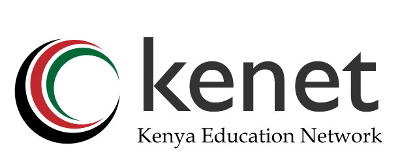You are here
KENET Boost Internet for Students, Making Speeds 25 Times Faster
Kenya Education Network (KENET) and Liquid Telecom Kenya have migrated Kenya's education and research institutions to connections that are up to 25 times faster than were possible in the past.
The new connections are increasing the total Internet capacity distributed to KENET member institutions using Liquid Telecom Kenya's network from as little as 200 megabytes in 2009 to now 6,000 megabytes in 2016, as each member is progressively connected at higher speeds.
At the end of a three year programme of connection, the partnership will deliver high speed Internet to more than 500,000 students and 20,000 members of staff across Kenya, most of who were previously suffering challenges in Internet access.
"The upgrades have been made essential by the changing educational landscape," said Professor Meoli Kashorda, KENET Executive Director, who said the majority of students and staff now rely on the Internet for learning and research: "They now view it as a necessity."
"The increase in Internet traffic has been phenomenal, with students acquiring devices that can access Wi-Fi, while institutions are using the Internet more. The Internet is changing ways of learning," he said.
This shift to greater Internet use ties with research showing that Internet access is key to delivering improved grades and academic performance. One study at the Federal Urdu University in Pakistan found that students who spend more hours studying on the Internet were averaging B+ to A- grades, while those who used it less were averaging B to B+.
According to fourth year student Lewis Muchiri from Kenya Methodist University, the faster Internet speeds have transformed his own learning. "With faster internet, I am accessing research papers, E-books and other learning materials that have helped me save time and focus more on my studies. We used to spend a lot of time waiting for pages to load, but today, with faster Wi-Fi, we even study from our smartphones," he said.
Providing faster and easier Internet access to students in Kenya and the rest of Africa is a key aim for Liquid Telecom.
"Getting the country's educational institutions and students onto high-speed Internet is an important step for Liquid Telecom Kenya, and aligns with our mission of achieving Internet access for every African and accelerating the benefits to society and the economy that come from high-quality Internet," said Ben Roberts, CEO Liquid Telecom Kenya.
KENET's upgrade of its connections through the deployment of the new Liquid Telecom Kenya technology follows from a partnership of several years between the two organizations.
KENET is mandated to provide affordable and cost-effective Internet connections that serve large numbers of students simultaneously. "Liquid Telecom Kenya has been our primary and back-up provider for a long time and its network is the most affordable of all providers," said Professor Kashorda.
Liquid Telecom now provides 70 per cent of KENET's leased line Internet capacity, and is in the process of upgrading the distribution network capacity by installing new equipment on member sites and increasing the reliability and quality of connection.
